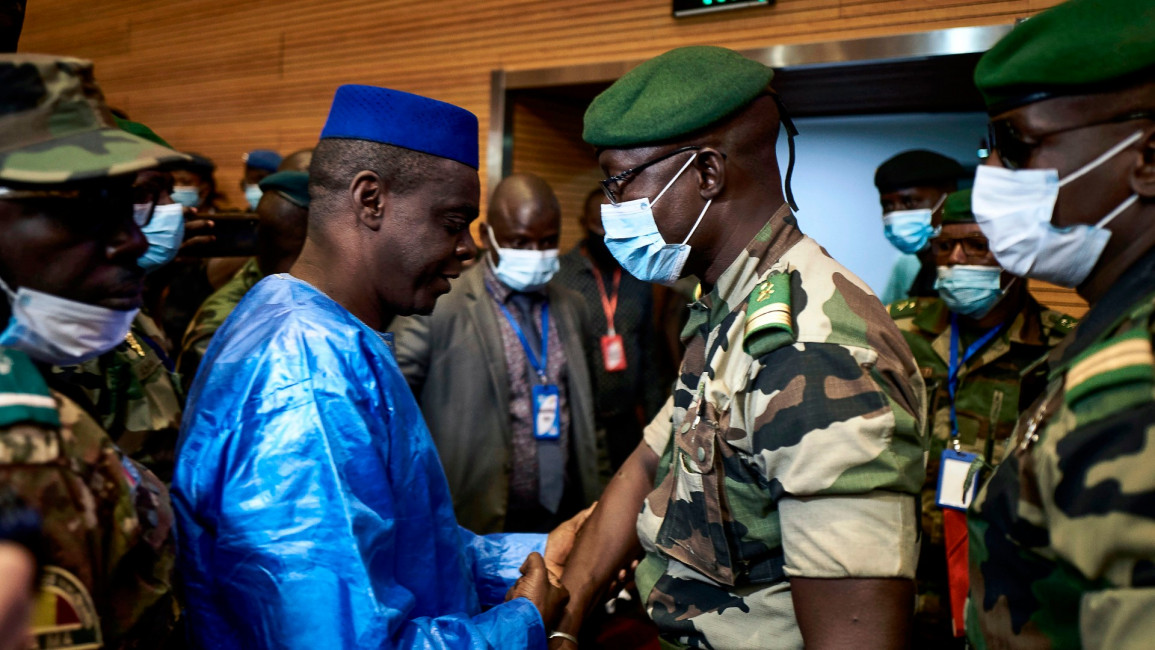Mali junta opens talks on power handover
Mali's military junta began talks with opposition groups on Saturday on its promise to hand power back to civilians, after mounting pressure from neighbouring countries in the weeks since it overthrew the nation's leader.
The West African country has long been plagued by instability, a simmering jihadist revolt, ethnic violence and endemic corruption, prompting a clique of rebel soldiers to detain president Ibrahim Boubacar Keita last month.
They pledged to step down after a transition period, but the putsch has prompted Mali's neighbours and former colonial ruler France to demand a swift transfer of power to civilian rule, with fears the crisis could impact neighbouring states.
The talks in Bamako are being held under junta chief Assimi Goita but he was not present Saturday, a military source said.
"Since August 18, we are charting a new history for our country," junta number two Malick Diaw told the opening session.
The summit was originally planned for last weekend but was called off at the last minute after a quarrel between the military and the June 5 Movement, which spearheaded the protests that led to the toppling of president Keita.
The opposition coalition of civil and religious leaders has demanded that the military rulers give it a role in the transition to civilian rule, but was not invited for the transition talks last Saturday.
It was then included for the rescheduled talks, along with political parties, former rebels, unions, civil society organisations and media representatives.
However, a mostly Tuareg coalition of armed rebel groups known as the Coordination of Movements of Azawad (CMA) was not present on Saturday.
The National Committee for the Salvation of the People (CNSP), as the junta is known, said parallel talks were taking place in regional capitals, led by regional governors.
But in Kidal, a city controlled by the CMA, "consultations were postponed for lack of compromise between the CNSP and the CMA," an administrative official told AFP on Saturday.
The CMA, which signed a peace accord with Keita's government in 2015, said in a statement that it expected "the implementation of the agreement resulting from the Algiers process with the previous government to remain in force".
The 2015 peace deal was meant to disarm rebel groups and integrate them into the national army, but its implementation has dragged on for years despite international pressure.
Closed borders
The CNSP said members of the Malian diaspora would also have their say in this weekend's talks.
One of the key issues will be the length of the transition to civilian rule.
Originally the junta proposed a three-year transition, before bringing that down to two years.
The June 5 Movement has said it wants a transition period of 18 to 24 months.
The 15-nation Economic Community of West African States (ECOWAS) regional bloc, which has imposed sanctions and closed borders to Mali as part of efforts to press the junta into handing over power quickly, has called for elections within 12 months.
West African leaders will meet via videoconference on Monday with the Mali situation at the top of their agenda.
Keita, who is under house arrest in Bamako, is preparing to leave Mali after being treated at a hospital this week for a mini-stroke, sources told AFP.
Keita may now head to the United Arab Emirates for further treatment, they said.
Follow us on Facebook, Twitter and Instagram to stay connected



